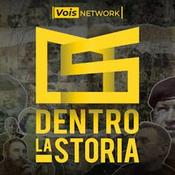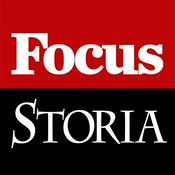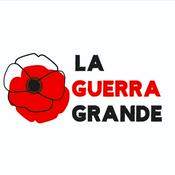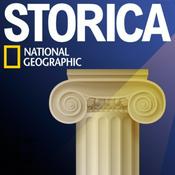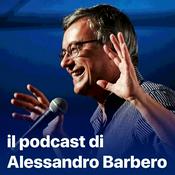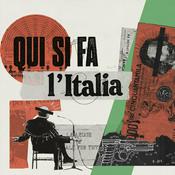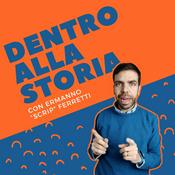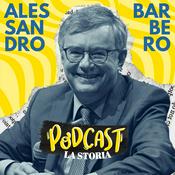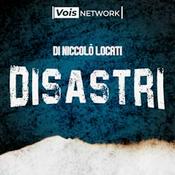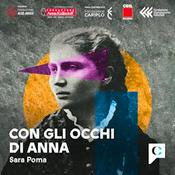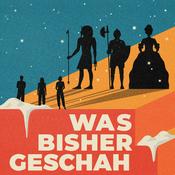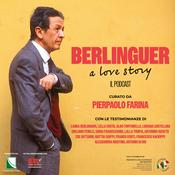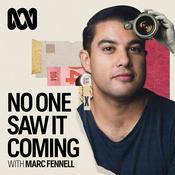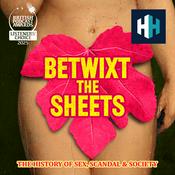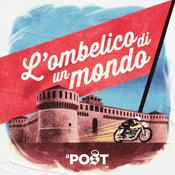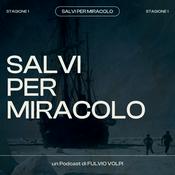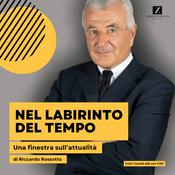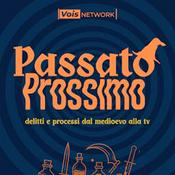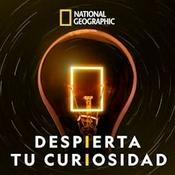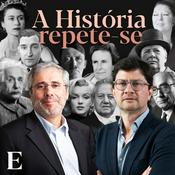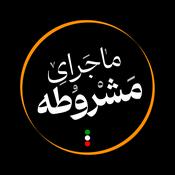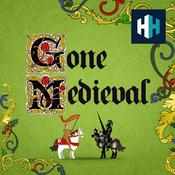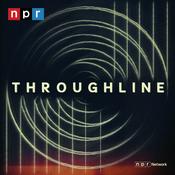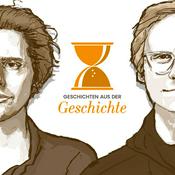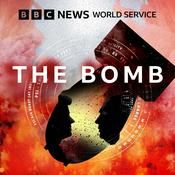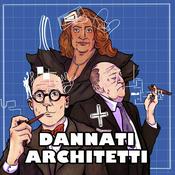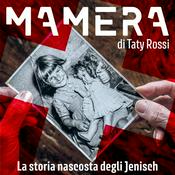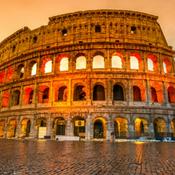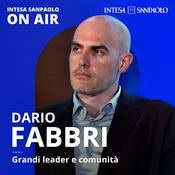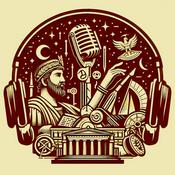11 episodi

10: Times of Transience
14/06/2024
While bookended by extended periods of unity and peace, the Period of Division in China was shaped by wars, displacement, and instability. Spanning nearly four centuries – from 280 to 589 AD to be exact – China fragmented into more than two dozen kingdoms at its peak. Social structures were installed and destroyed, competing canons of thought compiled, and multiple sects took shape. And yet, the Period of Division also witnessed an unprecedented flourishing of culture, innovation, and creativity. Together with historians Noa Hegesh and Keith Knapp, host Stephanie Hood journeys into this understudied era of Chinese history. How could art and culture thrive under such circumstances? What role did the legendary figure Mulan play? And most importantly, how do you deal with living in unpredictable and precarious times? Learn more about agricultural uses of alchemy in early modern Europe: https://bit.ly/transience-politics-practices About Noa Hegesh: https://www.mpiwg-berlin.mpg.de/people/nhegesh and https://telaviv.academia.edu/NHegesh About Keith Knapp: https://www.mpiwg-berlin.mpg.de/de/people/kknapp and https://www.citadel.edu/history/faculty-staff/keith-knapp-ph-d/ This podcast is produced by the Max Planck Institute for the History of Science, www.mpiwg-berlin.mpg.de Follow us on https://twitter.com/MPIWG Host: Stephanie Hood Concept and sound editing by Verena Braun Theme song by Podington Bear, CC NY-NC 3.0

09 - How Alchemy Helped Feed Early Modern Europe
14/02/2024
In the early modern era, European agriculture was in crisis. Soils had become depleted, crops grew smaller and fewer in number, and the growing seasons were shorter and cooler. Food production could no longer keep pace with population growth. To find solutions, some to turned to a field not commonly associated with agricultural production: alchemy. From the philosopher's stone to "vegetable salt" to early attempts in fertilization and modern chemical agriculture: host Stephanie Hood is joined by historian Justin Niermeier-Dohoney as they explore how people in the past dealt with similar ecological challenges to those we are facing today—and how some of their ideas may still provide clues for how to solve them. Learn more about agricultural uses of alchemy in early modern Europe: https://bit.ly/agriculture-and-alchemy About Justin Niermeier-Dohoney: https://www.fit.edu/faculty-profiles/n/niermeier-dohoney-justin/ and https://www.mpiwg-berlin.mpg.de/people/jniermeier This podcast is produced by the Max Planck Institute for the History of Science, www.mpiwg-berlin.mpg.de Follow us on https://twitter.com/MPIWG Host: Stephanie Hood Concept and sound editing by Verena Braun Theme song by Podington Bear, CC NY-NC 3.0

08 - Léon Rosenfeld and the Quest for Unification
25/01/2024
The Belgian physicist Léon Rosenfeld conducted groundbreaking research in theoretical physics. Yet he, and his work, are barely known about. Together, podcast host Stephanie Hood and historian of physics Bernadette Lessel go on a search for clues from Rosenfeld's life: What made his research so important, during a time when the field of physics itself went through a significant shift? Might looking at its history change physics today, and if so, how? And why are some figures in science better remembered than others? Learn more about Leon Rosenfeld and his research: https://bit.ly/maths-final-theory About Bernadette Lessel: https://www.mpiwg-berlin.mpg.de/de/people/blessel This podcast is produced by the Max Planck Institute for the History of Science, www.mpiwg-berlin.mpg.de Follow us on https://twitter.com/MPIWG Host: Stephanie Hood Concept and sound editing by Verena Braun Theme song by Podington Bear, CC NY-NC 3.0

Special Episode: There Is No One History of Science (But It’s All Interconnected)
28/08/2023
What is truth? When does a pandemic “end”? What decisions do we want to leave to artificial intelligence… and which would we rather not? These are some of the questions “that keep them up at night,” as science journalist Pakinam Amer puts it. “They” are researchers at the Max Planck Institute for the History of Science: Adrien de Sutter, Alexander Blum, Dora Vargha, and Yishu Mao. In this special episode of Science Social, Pakinam and host Stephanie Hood sit together with them to journey through the multifaceted ideas and concepts at the intersections of science, society, and history. In conversation, we explore how the science of the past is deeply connected to our present and future. And, we ask how diverse perspectives from these interdisciplinary spaces can help us to better understand and navigate our ever-evolving world—from devastating pandemics, to cutting-edge physics, to the dawn of AI. Learn more about the researchers mentioned in the episode: Adrien de Sutter: https://www.mpiwg-berlin.mpg.de/de/people/adesutter Alexander Blum: https://www.mpiwg-berlin.mpg.de/de/people/ablum Dora Vargha: https://www.mpiwg-berlin.mpg.de/de/people/dvargha Yishu Mao: https://www.mpiwg-berlin.mpg.de/de/people/ymao Rocco Gaudenzi: https://www.mpiwg-berlin.mpg.de/de/people/rgaudenzi Benjamin Johnson: https://www.mpiwg-berlin.mpg.de/de/people/bjohnson Karolina Sobecka: https://www.mpiwg-berlin.mpg.de/de/people/kasobecka This podcast is produced by the Max Planck Institute for the History of Science (MPIWG), www.mpiwg-berlin.mpg.de Follow us on https://twitter.com/MPIWG Hosted and written by: Pakinam Amer and Stephanie Hood Produced by: Pakinam Amer, Verena Braun, and Stephanie Hood Sound editing by: Verena Braun Theme song by: Podington Bear - Pretty and Cruddy Beat, CC NY-NC 3.0 Transition Music by: Podington Bear - Flutterbee, CC NY-NC 3.0 Audio Quote Joe Biden: President Biden: "The pandemic is over" | 60 Minutes

07 - Leonardo's Intellectual Cosmos
11/06/2021
Leonardo da Vinci is commonly known as the great inventor of creative machines, the artist of the famous drawing of the Vitruvian Man. But Leonardo was also an avid reader: his personal library contained nearly 200 books on science and technology, literature, and religion. The Max Planck Institute for the History of Science (MPIWG), with the Museo Galileo and the Staatsbibliothek zu Berlin, has reconstructed the lost book collection for the exhibition "Leonardo's Intellectual Cosmos," where visitors can now marvel at many of these outstanding old works. What can his books and codices tell us about this world-renowned artist, scientist, and intellectual, who continuously crossed boundaries between disciplines? How did the Renaissance era in which he lived influence his thinking and ideas? And what can we learn from him about science and public trust in science today? In this podcast episode, host Stephanie Hood welcomes Jürgen Renn, MPIWG Director and one of the curators of the exhibition, which is now open to visitors at the Staatsbibliothek zu Berlin. Due to the current pandemic situation, Jürgen Renn joins the podcast remotely. About Jürgen Renn: https://www.mpiwg-berlin.mpg.de/users/renn Learn more about the exhibition: http://bit.ly/leonardo-exhibition Visitor information: http://bit.ly/Leonardo-visitors Go to the virtual exhibition: https://leonardo-online.mpiwg-berlin.mpg.de/de/ This podcast is produced by the Max Planck Institute for the History of Science, www.mpiwg-berlin.mpg.de Follow us on https://twitter.com/MPIWG Host: Stephanie Hood Concept and sound editing by Verena Braun Theme song by Podington Bear, CC NY-NC 3.0
Altri podcast di Storia
Podcast di tendenza in Storia
Su Science Social - Conversations on History, Science, and Society
Ascolta Science Social - Conversations on History, Science, and Society, Racconti di Storia Podcast e molti altri podcast da tutto il mondo con l’applicazione di radio.it
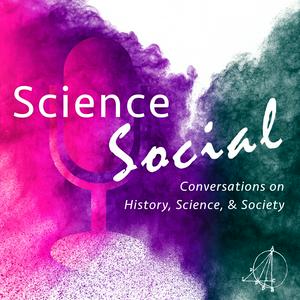
Scarica l'app gratuita radio.it
- Salva le radio e i podcast favoriti
- Streaming via Wi-Fi o Bluetooth
- Supporta Carplay & Android Auto
- Molte altre funzioni dell'app
Scarica l'app gratuita radio.it
- Salva le radio e i podcast favoriti
- Streaming via Wi-Fi o Bluetooth
- Supporta Carplay & Android Auto
- Molte altre funzioni dell'app


Science Social - Conversations on History, Science, and Society
scarica l'app,
ascolta.
